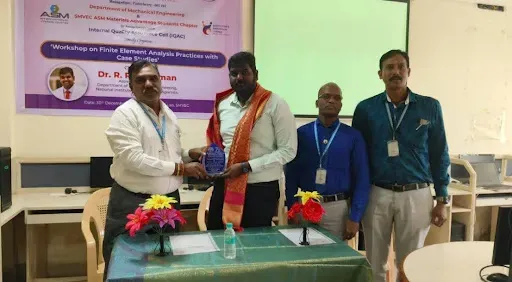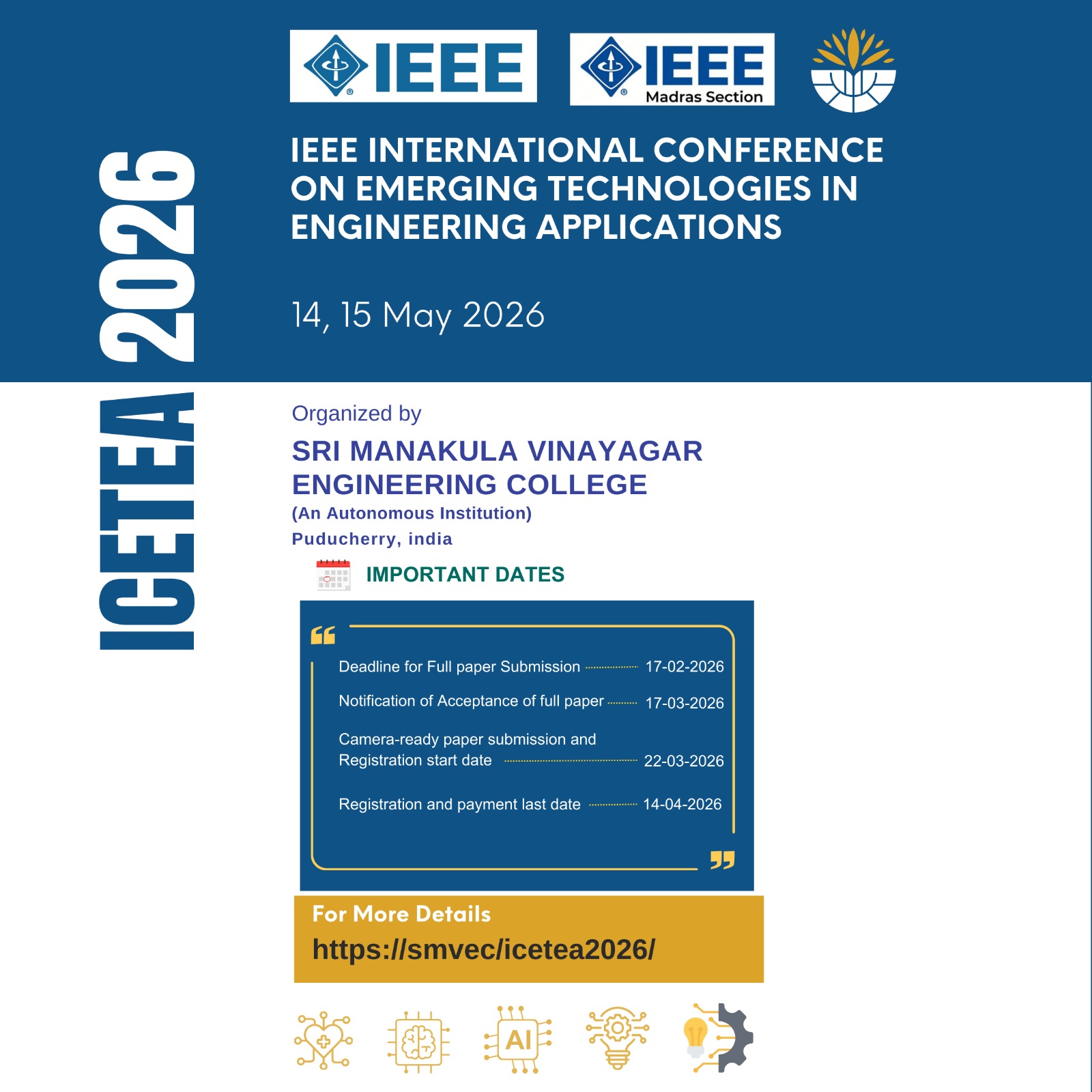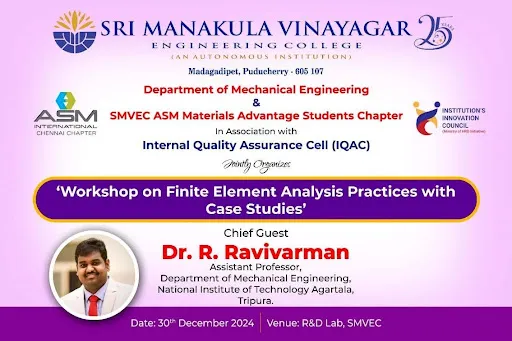
Sri Manakula Vinayagar Engineering College (SMVEC) recently hosted a workshop titled “Finite Element Analysis Practices with Case Studies,” aimed at providing students and professionals with practical insights into Finite Element Analysis (FEA) and its real-world applications.
Honouring the chief guest
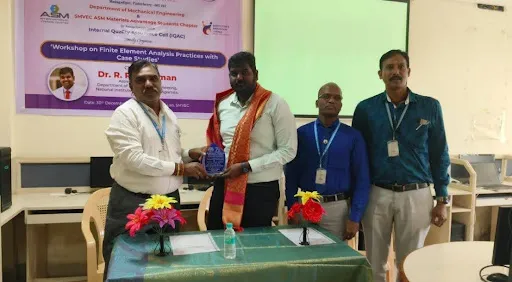
The event commenced with a warm welcome and the honoring of distinguished guests. The chief guest, Dr.R.Ravivarman, Assistant Professor, Department of Mechanical Engineering, NIT Agartala was felicitated with a traditional shawl and memento as a token of appreciation for their presence and contribution to the field. This gesture underscored SMVEC’s commitment to recognizing and valuing the expertise and insights brought by esteemed professionals to enrich the learning experience of participants.
Theory session : the FEA applications in automative with Case Studies
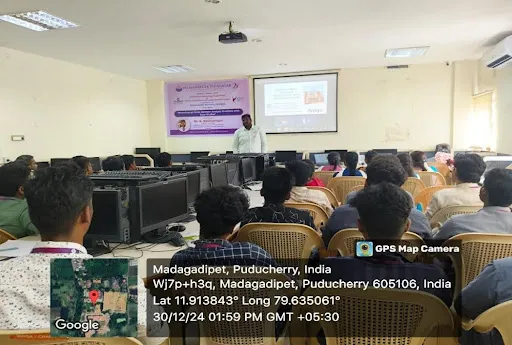
He Chief Guest highlighted the role of FEA in optimizing the design of vehicle components such as crash tubes. By analyzing different materials and geometries, engineers can develop components that absorb impact energy more effectively, contributing to overall vehicle safety.
Participation of students
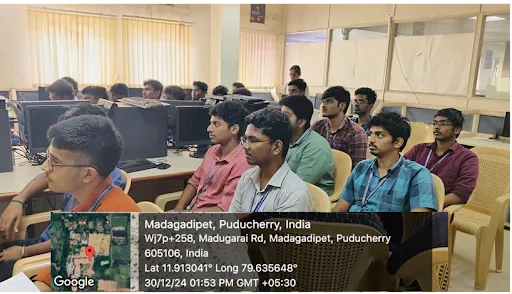
tudents engaged actively through a variety of interactive methods. Techniques such as think-pair-share exercises encouraged them to contemplate questions individually, discuss their thoughts with peers, and share insights with the larger group. This approach not only fostered deeper understanding but also built confidence in articulating complex concepts.
Instructors incorporated real-time polling tools to gauge comprehension and stimulate discussion. These instant feedback mechanisms allowed students to reflect on their learning and provided instructors with insights to address areas of confusion promptly.
Participants engaged in learning on Finite Element Analysis Practices
The sessions were designed to foster interactive learning, where students participated in collaborative problem-solving exercises, analyzed real-world case studies, and engaged in hands-on simulations. This approach not only enhanced their understanding of FEA principles but also developed their critical thinking and analytical skills.
By working through practical scenarios, students gained insights into the complexities of engineering analysis, preparing them for real-world challenges in their future careers. The workshop’s emphasis on active participation and experiential learning ensured that students could apply theoretical knowledge effectively, aligning with best practices in engineering education.
Conclusion
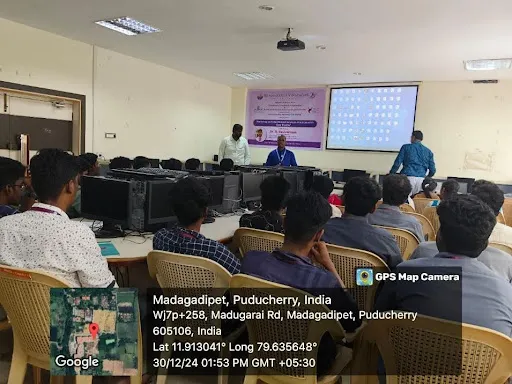
SMVEC’s commitment to providing practical, industry-relevant education was evident in the successful execution of the “Finite Element Analysis Practices with Case Studies” workshop. By combining theoretical knowledge with hands-on experience, the workshop equipped participants with the necessary skills to excel in the field of engineering analysis and design.

